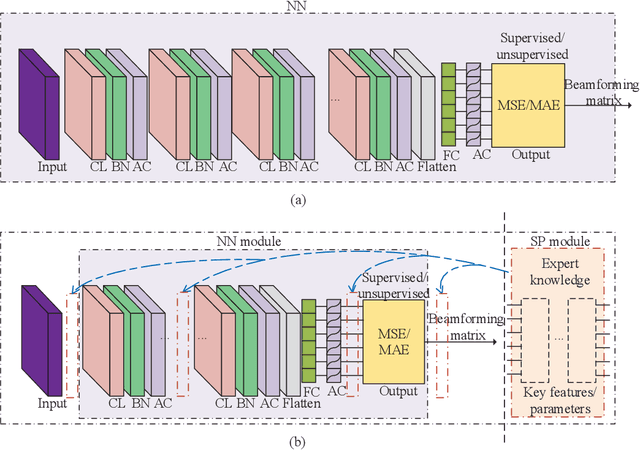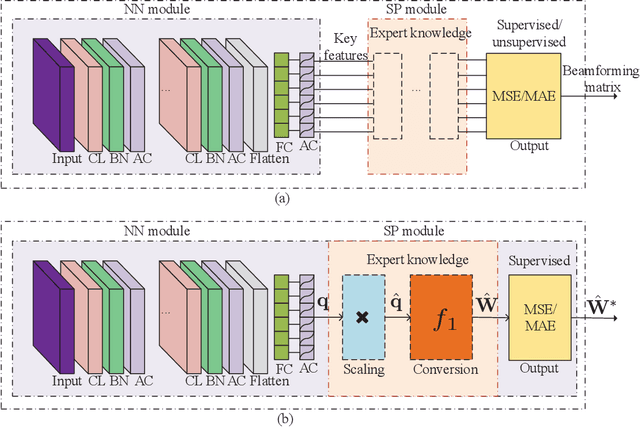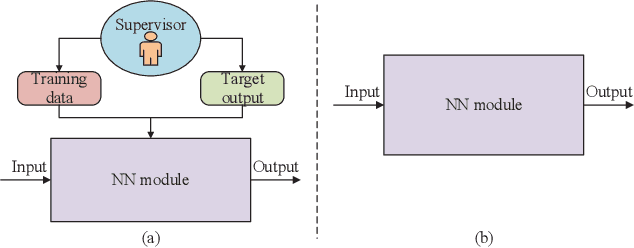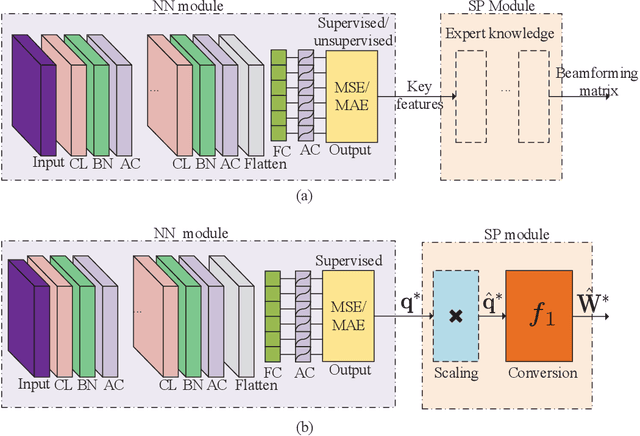Model-Driven Beamforming Neural Networks
Paper and Code
Jan 15, 2020



Beamforming is evidently a core technology in recent generations of mobile communication networks. Nevertheless, an iterative process is typically required to optimize the parameters, making it ill-placed for real-time implementation due to high complexity and computational delay. Heuristic solutions such as zero-forcing (ZF) are simpler but at the expense of performance loss. Alternatively, deep learning (DL) is well understood to be a generalizing technique that can deliver promising results for a wide range of applications at much lower complexity if it is sufficiently trained. As a consequence, DL may present itself as an attractive solution to beamforming. To exploit DL, this article introduces general data- and model-driven beamforming neural networks (BNNs), presents various possible learning strategies, and also discusses complexity reduction for the DL-based BNNs. We also offer enhancement methods such as training-set augmentation and transfer learning in order to improve the generality of BNNs, accompanied by computer simulation results and testbed results showing the performance of such BNN solutions.
 Add to Chrome
Add to Chrome Add to Firefox
Add to Firefox Add to Edge
Add to Edge